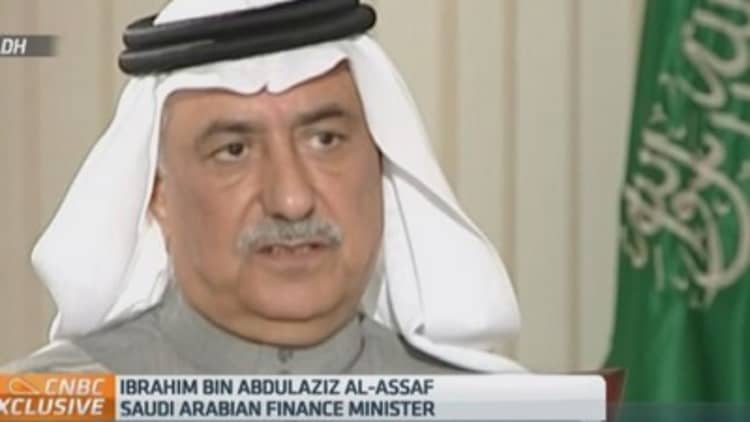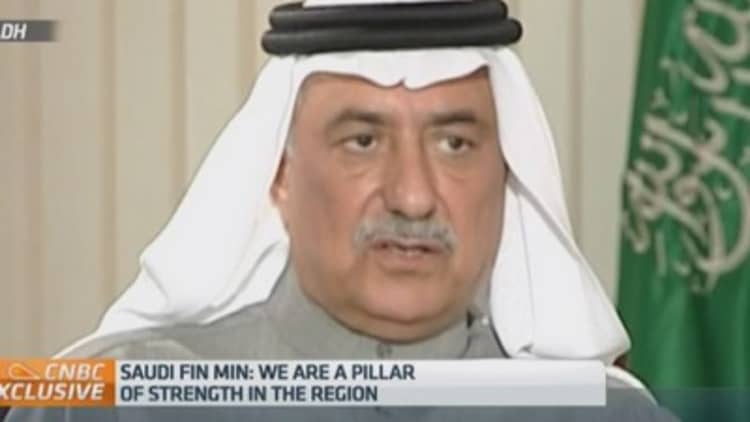
Saudi Arabia will continue to dip into its cash reserves and use its ability to borrow to temper the ongoing storm in oil markets, the country's finance minister told CNBC.
Ibrahim Abdulaziz Al-Assaf said Thursday that the country had been preparing for a period of cheap oil.
"We have learned from the past…obviously the oil market, everybody knows, goes through ups and downs and peaks and valleys," he said.
The price of oil has fallen by around 60 percent since mid-June last year and has raised fears of bankruptcies for oil producers and recessions in oil-reliant economies like Russia and Venezuela.
"We have the resources…we (have) built the buffers to help us in sustaining our policies and not disrupting them so I am comfortable that we will be able to continue that," Al-Assaf said.
"(It) allows us to continue our resources for quite some time."
One possible consequence of a lower oil price is a fall in U.S. shale oil production, the International Energy Agency (IEA) said last year, with the potential for a cut in U.S. investment by 10 percent this year.
Saudi Arabia is the world's top exporter of oil and one of the biggest producers. The country is the main swing producer in the Gulf region and is able to cut and expand production more freely than some of its neighbors.
The country is also a key member of the (Organization of the Petroleum Exporting Countries) OPEC, whose reluctance to cut its output has been seen as driving oil prices lower. Weak demand, a strong dollar and booming U.S. oil production are also cited as reasons, according to the International Energy Agency (IEA).

"We have both the reserves as well as the ability to borrow because we retired almost all of our debt in the past," Al-Assaf said. "Our ability to borrow is huge, so we are looking at both borrowing as well as using our other buffer which is the budget reserve."
Many analysts believe that OPEC nations have let the oil price decline to "crowd out" the U.S., as shale production costs are higher than those in traditional oil production.
BNP Paribas oil analysts, led by Harry Tchilinguirian, wrote in a note late last year that Saudi Arabia was playing a "game of chicken," and on Monday, hedge fund manager Paul Singer also launched a stinging attack on the country. Singer claimed in his annual newsletter that the price collapse had been "engineered" by Saudi Arabia to put higher-cost rivals out of business.



